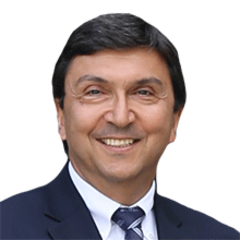In the old debate about nature versus nurture, educators tend to range from unalloyed optimism to dogged pragmatism. Our work may be done in primary or secondary schools, in colleges or universities. But we believe that education is vital to helping people realize their potential, and that learning is a key to individual fulfilment and societal success.
Much evidence supports this positive view of education. But recent research is breaking down the old nature-nurture divide in surprising ways. In simple terms, the old model saw environmental and developmental influences, including education, layered onto a fixed genetic base. The new model, based on the science of epigenetics, sees those same influences interacting with certain genes to turn them on or off permanently, or modify their expression up and down like a dimmer switch.
Basic science and a growing number of human studies reinforce this new perspective. Recent studies have examined the long-term effects of maternal nutrition during pregnancy, exposure to different stimuli in the womb and after birth, and factors such as nurturing, diet and exercise in early childhood. What they all show, with remarkable consistency, is that these early influences have major impacts on our adult health, emotional well-being and capacity to learn. A child’s early social environment literally shapes the architecture of the brain, affecting his or her behaviour and learning abilities for many years into the future.
These startling insights have already percolated into Canadian policy-making, generating increased public investment in early childhood education. Two U of T alumni – the Hon. Margaret Norrie McCain and Dr. Fraser Mustard – led the way with their 1999 report, provocatively titled The Early Years Study: Reversing the Real Brain Drain. McCain and Mustard’s report underscored the importance of life’s first three years and found that children who do not receive proper nutrition and care are more likely to develop learning or emotional problems later on.
Today, at the University of Toronto, early human development is a thriving field for research involving outstanding scholars and students on all three campuses and in several of the university’s partner hospitals. For example, Stephen Lye, a professor of physiology based at Mount Sinai Hospital, leads a team that has shown how one strain of mice stressed during pregnancy produces obese offspring, while another strain is resistant to this effect. Lye is also part of a study following 2,000 Australians to determine exactly how prenatal and early childhood influences affect lifelong metabolism, increasing or decreasing risks of diabetes, high blood pressure and heart disease.
Marla Sokolowski, a professor in the biology department at the Mississauga campus, is investigating early nutritional deprivation in an animal model and the impact this has on learning, memory and exploratory behaviour. This field – sometimes called nutrigenomics – has huge promise in the prevention of disease and optimization of human health and development.
Our researchers are also developing interventions that can make an immediate difference. For example, Carl Corter, a professor of education at the Dr. Eric Jackman Institute of Child Study, is looking at how the life chances of the next generation can be improved by better support for young children and families during their preschool and early primary school years.
The importance of this work is so overwhelming that the university is now planning a new Institute for Human Development. It will be dedicated to understanding how early experiences and environments shape our individual potential and ultimately affect the success and well-being of our society. I believe it will rapidly emerge as one of the top initiatives of its type in the world.
In a sense, of course, universities have always been about human potential, and the Institute for Human Development is a logical extension of our mission. In the months ahead, you will hear more about the institute, along with many other exciting plans afoot at the University of Toronto. Meanwhile, as always, best wishes from your alma mater.
Sincerely,
David Naylor
Recent Posts
U of T’s 197th Birthday Quiz
Test your knowledge of all things U of T in honour of the university’s 197th anniversary on March 15!
Are Cold Plunges Good for You?
Research suggests they are, in three ways
Work Has Changed. So Have the Qualities of Good Leadership
Rapid shifts in everything from technology to employee expectations are pressuring leaders to constantly adapt






